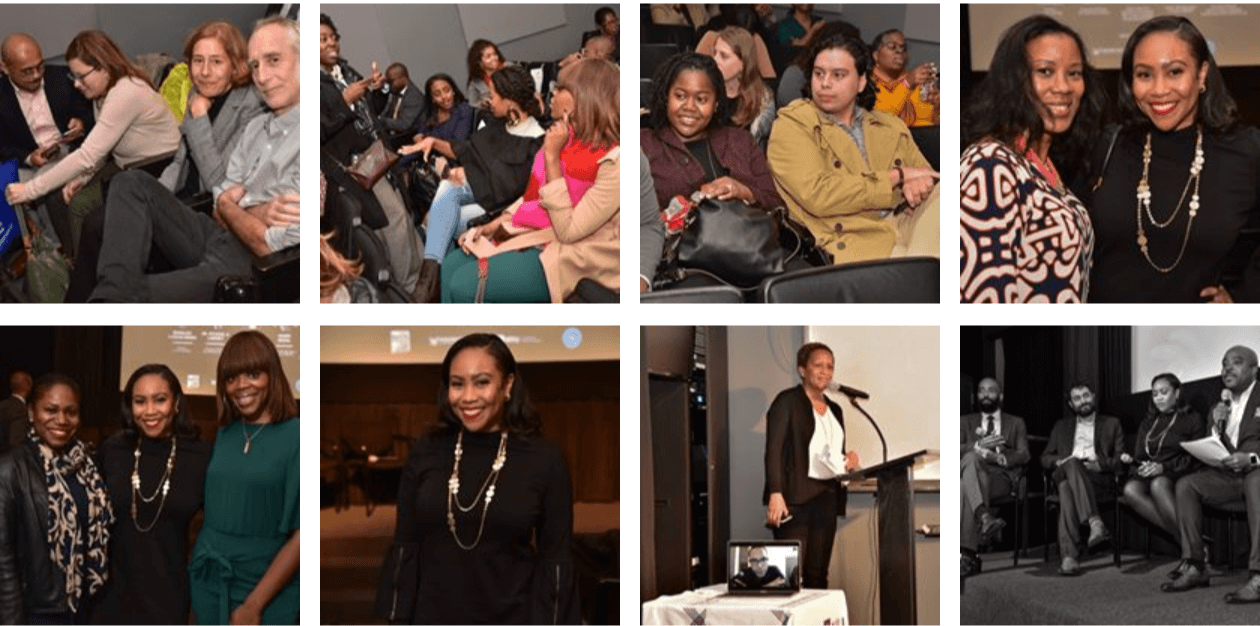On Monday, November 5, the NYU McSilver Institute for Poverty Policy and Research co-hosted a free screening of the critically-acclaimed film, Monsters and Men at the Cantor Film Center in Manhattan, followed by a panel discussion about policed lives, policing and justice.
Moderated by McSilver’s executive director, Dr. Michael A. Lindsey, the panel discussion included the director, NYU Tisch School of the Arts alumnus and adjunct professor Reinaldo Marcus Green; Jerika Richardson, senior advisor and secretary to NYC Civilian Complaint Review Board (CCRB); Harry Siegel, New York Daily News columnist and FAQ NYC co-host; and Vincent M. Southerland, executive director of the Center on Race, Inequality, and the Law at NYU Law School.
Monsters and Men tells the story of three people in the aftermath of police shooting of an unarmed black man: the young man who recorded it on his cell phone; a black police officer whose colleague was involved; and a young student athlete who is inspired to activism. After the film, an audience of approximately 140 people enjoyed a far-ranging discussion that touched on New York City’s Right to Know law involving police identifications in certain interactions; the revelation that there are no longer enough local reporters on the ground to pay attention to criminal justice; and a discussion of implicit bias training and its limits.
Green, who Skyped in from Rome to participate in the discussion, said the only way to improve relations between law enforcement and the communities they are supposed to serve is to stay engaged and open to dialogue. “We have to be aware,” he remarked, speaking of people who believe they are being policed unjustly. “We need to bond together as a community. We have to make films, make art, talk about it. We have to fight back against it. And we have to engage the other side. It’s the only way for us to move forward. I think we have to find ways to find common ground, take baby steps.”
Richardson said the vast majority of officers are in black and brown communities to protect and serve, but it will take work from everyone to ensure that these communities receive the protection and justice they deserve. “Everyone plays a role, everyone in this community,” she said. “Whether you’re in law enforcement, a journalist, and advocate or an everyday person. We all have a responsibility to put pressure on the system, to continue to bring reform to the system, and also to bring about a culture change.”
The evening was co-sponsored by the McSilver Institute; the CCRB; the Center on Race, Inequality and the Law; and NYU’s Strategies to Reduce Inequality (SRI) initiative. The panel discussion is archived on Facebook Live, and a gallery of photos from the event is also available on Facebook.
Video Recording

